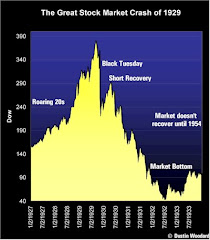The Economist reports on the pension crisis in America in a recent article Hard-pressed American states face a crushing pensions bill
CHUCK REED is the Democratic mayor of San Jose, California. You might expect him to be an ally of public-sector workers, a powerful lobby in the Golden State. But last month, at a hearing on pension reform held by the Little Hoover Commission, which monitors the state’s government, Mr Reed lamented his crippling public-pensions bill. “City payments for retirement benefits have tripled over the last ten years even though our workforce has declined dramatically, and we have billions of dollars in unfunded liabilities that the taxpayers must pay,” he said.
Mr Reed estimated that the average cost to his city of employing a police officer or firefighter was $180,000 a year. Not only can such workers retire at 50, but some enjoy annual pension payments greater than their salaries. They are also entitled to cost-of-living increases of 3% a year, health and dental insurance for life and lump-sum payments for unused sick leave that could reach hundreds of thousands of dollars.

Now the problem is making headlines, especially in California, where taxpayer groups have been highlighting the generous pensions of some former employees. More than 9,000 beneficiaries of CalPERS, the largest state retirement plan, receive more than $100,000 a year.
The stage is set for conflict between public-sector workers and taxpayers. Because almost all states are required to balance their budgets, any extra pension contributions they make to mend a deficit will come at the expense of other citizens. Utah has calculated it will have to commit 10% of its general fund for 25 years to pay for the effects of the 2008 stockmarket crash. But attempts to reduce the cost of pensions are being challenged in court and will be opposed by trade unions, which still have plenty of members in the public sector.
New Jersey provides a prime example of America’s pension difficulties. In August the Securities and Exchange Commission (SEC) charged the state with fraud for misrepresenting the underfunding of its pension plans to municipal-bond investors. This was the first time a state had been charged with violating federal securities laws. It settled the case without admitting or denying the SEC’s findings.
A study by Ms Norcross and Mr Biggs outlines, using the Treasury yield as a discount rate, how New Jersey has run up a pensions deficit of $174 billion. That is equivalent to 44% of the state’s GDP, or more than three times its official debt.
Understated Liabilities
The Wall Street Journal reports that a major part of the problems are the accounting rules that are applied to pensions. An article today shows that Cities Hide Pension Liabilities
Many of the largest U.S. municipalities are understating the true size of their pension obligations by using inappropriate accounting methods, leading to $574 billion of unfunded pension liabilities, according to a study released Tuesday.
Those unfunded pension benefits are in addition to $3 trillion of unfunded liabilities that the study's authors have said exist among state pension plans.
Supersized Superannuation - Canada's Problem
Earlier this year the CD Howe Institute released its analysis of the underfunded situation in Canada. They called the report Supersized Superannuation: The Startling Fair-Value Cost of Federal Government Pensions This report shows that Canada has a serious problem with its plans.
As long as bureaucrats and politicians have a retirement that is dependent on these gold-plated taxpayer funded plans; this problem will be kicked down the road.
It is hard to change the system.
The public sector unions have take municipalities and states to court to have any pension changes overturned. The courts have upheld the pensions in their current form. They cannot be changed for existing employees.
Of course the unions have a point when they feel they are the scapegoats for a broken system. Especially when the financial institutions that were bailed out by taxpayers are abusing taxpayers.
Another indication of our broken system is the bonuses that Wall Street are taking home this year. Wall St. soaking up record bonuses shows that executives of financial companies are expected to receive a record $144 billion in pay and bonuses this year.
Someone has to pay these bills of course. It will be taxpayers everywhere who are responsible for bailing out both incompetent corporations and pension shortfalls.
Bill Tufts
Fair Pensions For All




No comments:
Post a Comment